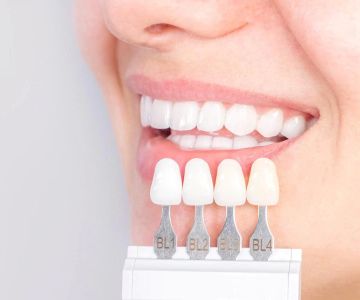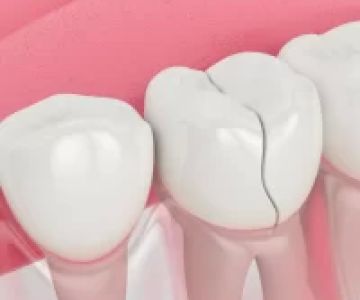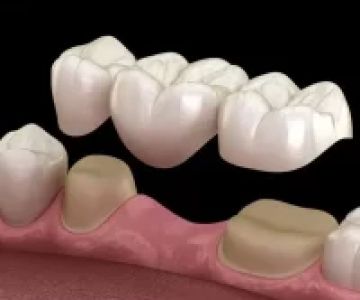How to Manage Oral Health with Diabetes: Essential Tips and Practices
- Why Oral Health is Crucial for Diabetic Patients
- Common Oral Health Issues in Diabetic Patients
- Top Tips for Maintaining Oral Health with Diabetes
- When to Visit a Dentist for Diabetic Oral Care
1. Why Oral Health is Crucial for Diabetic Patients
Managing oral health with diabetes is extremely important because diabetic individuals are at a higher risk for oral health problems. Uncontrolled blood sugar levels can lead to dry mouth, gum disease, and tooth decay. Maintaining good oral hygiene can significantly reduce these risks and improve overall well-being.
In addition to causing physical discomfort, poor oral health in diabetics can also affect the body's ability to control blood sugar levels, making it even more challenging to manage diabetes effectively. It's a cycle that can be broken with proper dental care and regular check-ups.
2. Common Oral Health Issues in Diabetic Patients
Diabetes can lead to several oral health issues, some of which are more severe if left untreated. Here are the most common concerns:
- Gum Disease: Diabetic patients are at a higher risk for periodontal disease, which can lead to swollen, bleeding gums and tooth loss if not properly managed.
- Dry Mouth: Dry mouth (xerostomia) is a common issue due to reduced saliva production, which can lead to difficulty in speaking, swallowing, and a higher likelihood of cavities.
- Tooth Decay: Elevated glucose levels in saliva can lead to an increased amount of plaque and bacteria, which contributes to cavities and tooth decay.
- Infections: High blood sugar levels can weaken the immune system, making it harder for the body to fight off infections, including those in the mouth.
Recognizing and addressing these issues early is key to preventing more serious complications down the road.
3. Top Tips for Maintaining Oral Health with Diabetes
Maintaining oral health with diabetes involves more than just brushing and flossing. Here are some important steps to keep your mouth healthy:
- Brush Regularly: Brush your teeth at least twice a day using fluoride toothpaste. This helps remove plaque, which can contribute to cavities and gum disease.
- Floss Daily: Flossing removes food particles and plaque from between the teeth where a toothbrush can't reach. This is crucial for preventing gum disease.
- Stay Hydrated: Drink plenty of water throughout the day to help combat dry mouth. Staying hydrated also supports saliva production, which is important for neutralizing acids and preventing tooth decay.
- Control Blood Sugar Levels: Keeping blood sugar levels within the target range is one of the most effective ways to reduce the risk of oral health problems. This will also help prevent complications like gum disease.
- Use a Soft-Bristled Toothbrush: Choose a soft-bristled toothbrush to avoid damaging your gums, especially if you have sensitive or receding gums.
Following these practices consistently can greatly reduce the risk of serious dental problems and help maintain a healthy smile.
4. When to Visit a Dentist for Diabetic Oral Care
Regular dental visits are crucial for diabetic patients. The American Dental Association recommends seeing your dentist at least twice a year, or more frequently if you have specific oral health concerns. Here’s when you should schedule a visit:
- If you notice any signs of gum disease, such as swollen or bleeding gums.
- If you have persistent dry mouth, which can affect your overall oral health.
- If you experience any tooth pain or sensitivity.
- If you have trouble controlling your blood sugar levels and notice a change in your oral health.
By staying proactive with your oral care and visiting your dentist regularly, you can manage oral health with diabetes and prevent many common oral health issues from developing.







 Westgate Dental Arts
Westgate Dental Arts Coventry Family Dental
Coventry Family Dental Familia Dental
Familia Dental Dr. Daniel S. Fife, DDS
Dr. Daniel S. Fife, DDS Dentistry At Suburban Square: Michael I. Wollock, DMD
Dentistry At Suburban Square: Michael I. Wollock, DMD Comfort Care Dental
Comfort Care Dental The Importance of Oral Health Education During Pregnancy for a Healthy Pregnancy
The Importance of Oral Health Education During Pregnancy for a Healthy Pregnancy Why Skipping Dental Checkups Can Lead to Bigger Oral Health Problems
Why Skipping Dental Checkups Can Lead to Bigger Oral Health Problems Advantages of Porcelain Dental Restorations
Advantages of Porcelain Dental Restorations Best Tips for Brushing Your Teeth Properly for Healthy Gums: Essential Techniques for Oral Health
Best Tips for Brushing Your Teeth Properly for Healthy Gums: Essential Techniques for Oral Health How Can Diabetes Cause Tooth and Gum Problems? Preventing and Managing Oral Health Issues
How Can Diabetes Cause Tooth and Gum Problems? Preventing and Managing Oral Health Issues Healthy Habits for Promoting Good Oral Health and Hygiene: Tips for a Healthy Smile
Healthy Habits for Promoting Good Oral Health and Hygiene: Tips for a Healthy Smile